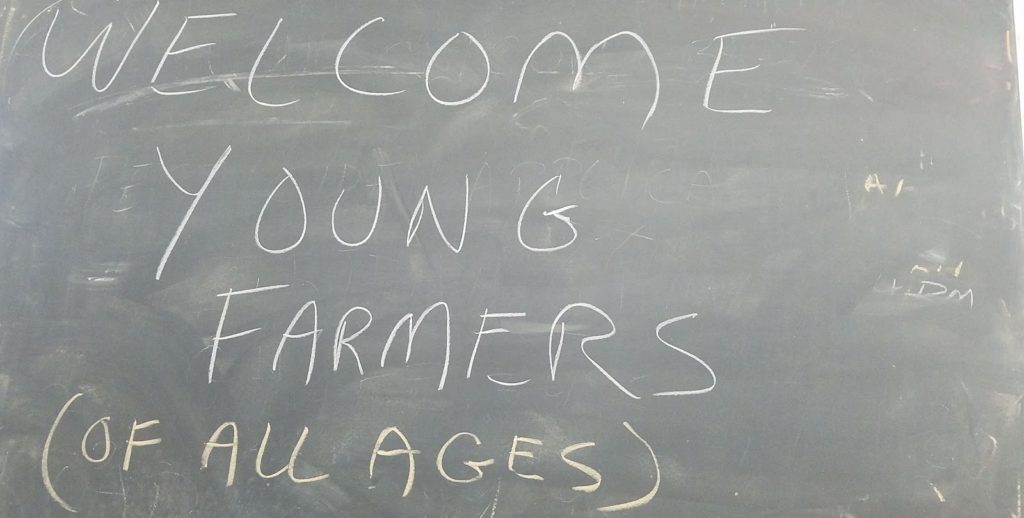by Vanessa García Polanco

When you’re driving in rural America and pass a farm, do you ever wonder how it came to be or do you just assume it has been there for generations and will be there for generations?
I think that is the biggest distinction between some of our rural and urban farms. Many urban farms are more recent in our memory, as many of them sprouted across the country in the 1990s. They often have signs posted about their managing agency or how long they’ve been operating.
When it comes to some of the most quintessential farmland and farms that we as individuals and family have connections to, we might not know how they came to be there or what their future looks like. Knowing the history of farms and farmland in our communities is important as a new wave of beginning, young, and future farmers seek access to land at a time when the cost of land is one of the biggest barriers to becoming a farmer.
A creative partnership is looking to promote those conversations. The Young Farmer Network of Southern New England, a chapter of the National Young Farmers Coalition, has partnered with Land for Good, an organization that seeks to connect farmers to land, partnered this year to showcase different kinds of land arrangements at their Young Farmers Network’s Young Farmer Nights. Young Farmer Night has been a program of YFN for a few years now as a way to facilitate exposure and intergenerational learning between established farmers and young, beginning, and future farmers in Rhode Island that usually involves a farm tour and potluck during the growing season.
Intergenerational farming, leasing from a land trust, private landowner leasing, cooperative land use, private purchase, and so on are just a sample of the different land access options and arrangements participants can learn about. Usually at Young Farmer Nights, land type and history will come up, but, by purposely highlighting the type of land situation before the tour, participants can decide which kinds of arrangements to learn more about and discover new possibilities.
This informative series will wrap up the season with a culminating event sponsored by the Young Farmer Network and Land For Good to process what participants learned about land access struggles and triumphs from the season’s tours.
I attended their first tour at Chase Farms, a 40-acre wholesale ornamental flower farm in Portsmouth, Rhode Island. Braving a rainy, cold day in Rhode Island, those who attended were mesmerized by the infrastructure of this third-generation farm, one of its greatest assets being its multi-generational ownership. As we wrapped up the 3-hour tour, potluck, and bonfire (yes, it was that cold), Sam Chase, an owner of the farm, told us about an opportunity to work a few acres of the land that includes housing. The farmers hope to increase their vegetable production by bringing on new farmhands this year.
Hearing about an opportunity like that can happen thanks to conversations about farmland and farms. So let’s talk about the land, its past and its future.


